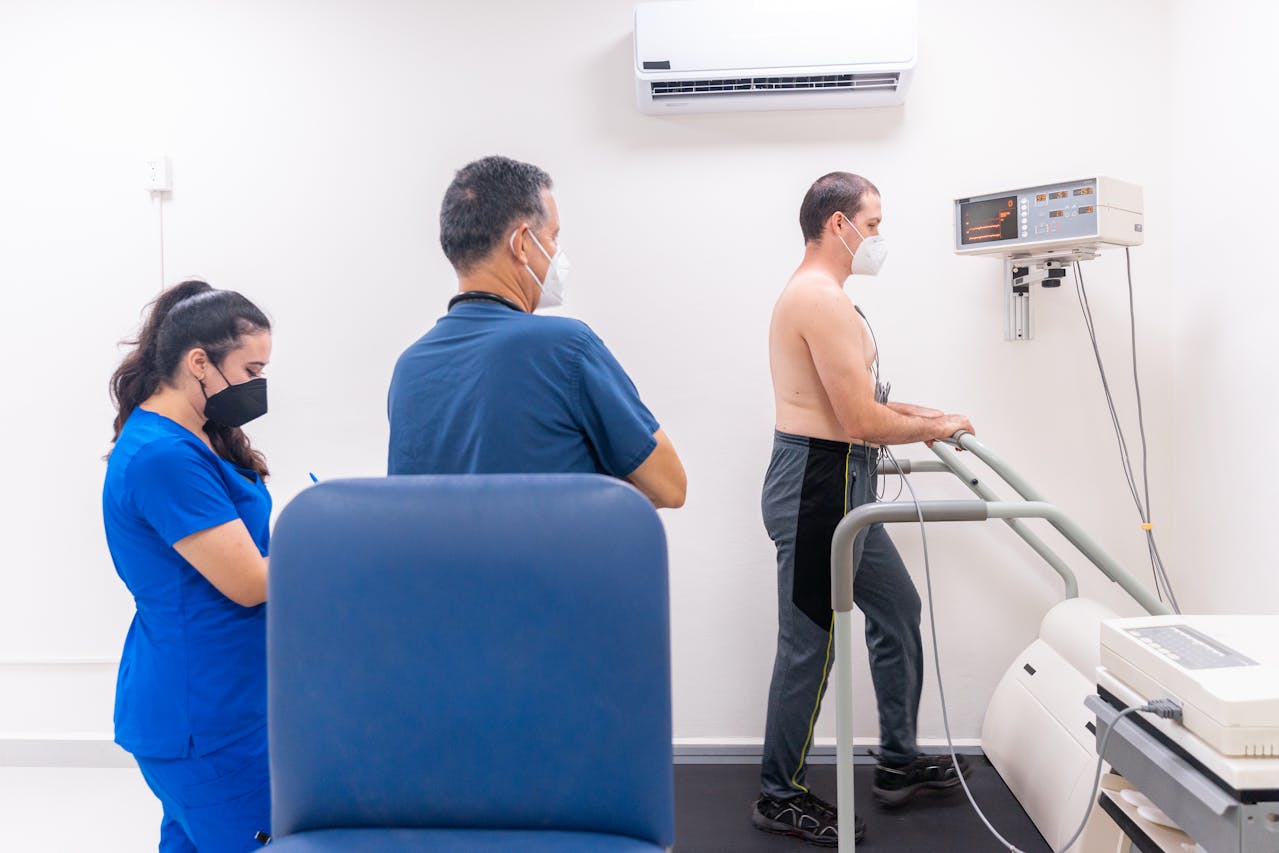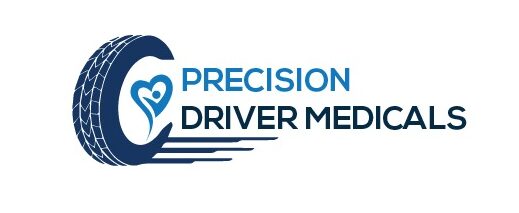Learn everything about HGV blood pressure limits for DVLA Driver Medicals. Find out what’s acceptable, what causes rejection, and how to stay within the limit. Book your Driver Medical with us today.
Overview
If you’re an HGV driver in the UK, passing your DVLA medical is essential to keeping your license valid and staying on the road. One key part of the Driver Medicals process is meeting the blood pressure requirements set by the DVLA.
In this post, we’ll break down:
- The official HGV blood pressure limit by DVLA standards
- What happens if your blood pressure is too high
- How to lower your reading before a medical
- How Precision Driver Medicals can help you meet the requirements easily
Let’s get into the details.
Understanding Driver Medicals: Why They Matter
Driver medicals are mandatory health assessments for professional drivers of HGVs, PCVs, taxis, and other Group 2 license categories. The DVLA requires these medicals to ensure drivers are physically fit to operate large vehicles safely.
Blood pressure is one of the critical areas checked during a driver medical, alongside:
At Precision Driver Medicals, we provide DVLA-compliant medicals across the UK, with same-day and weekend appointments available for your convenience.

DVLA HGV Blood Pressure Limit: What’s Acceptable?
The DVLA has strict guidelines on blood pressure for HGV drivers. Your blood pressure reading can determine whether you’re:
- Medically fit to drive,
- Require annual checkups,
- Or need to pause driving altogether.
Acceptable HGV Blood Pressure Range
According to DVLA Group 2 medical standards:
- Your systolic (top number) should be ≤ 179 mmHg
- Your diastolic (bottom number) should be ≤ 99 mmHg
So, anything under 180/100 mmHg is considered acceptable during your driver’s medicals.
What Happens If Your Blood Pressure Is Higher?
If your blood pressure is:
- Between 180/100 and 199/109 mmHg:
- You’ll still be eligible for your license but only for one year
- You’ll need annual medicals until your blood pressure lowers
- 200/110 mmHg or above:
- You fail the medical
- Your HGV license will be revoked or not issued
- You must lower your blood pressure before applying again
Why Does the DVLA Care About Blood Pressure?
High blood pressure, or hypertension, increases the risk of:
These can all significantly impair a driver’s ability to control a heavy vehicle, putting themselves and others at risk. That’s why driver medicals are so strict about blood pressure limits.
Tips to Keep Your Blood Pressure Within DVLA Limits
Here are some effective ways to maintain or lower blood pressure before your HGV medical:
Before Your Appointment
- Avoid caffeine and smoking at least 1 hour before your exam
- Arrive relaxed and rested — stress can raise readings
- Wear comfortable clothing to avoid extra stress
Diet and Lifestyle Tips
- Eat more fruits and vegetables, high in potassium, which helps regulate blood pressure
- Reduce salt intake: excess sodium raises your pressure
- Exercise regularly: even light walking helps
- Stay hydrated: dehydration can cause fluctuations
Medication
- If you’re on blood pressure medication, take it consistently
- Bring your prescription list to your appointment
- Inform the doctor of any recent changes in dosage
How Often Do HGV Drivers Need a Medical?
Initial DVLA Medical
- Required when you first apply for a Group 2 license (D4 form)
Every 5 Years
- From age 45 to 65, you’ll need a medical every 5 years.
Annually
- After age 65
- Or if your blood pressure is borderline (180–199 systolic)
That’s why it’s important to manage your blood pressure proactively.

What to Expect During Your Driver Medical at Precision Driver Medicals
At Precision Driver Medicals, we make the process smooth and hassle-free.
Here’s what your HGV medical includes:
- Blood pressure measurement
- Vision test (both distance and field)
- Medical history review
- Urinalysis (for diabetes screening)
- Completion of the DVLA D4 form by a GMC-registered doctor
We’re proud to serve professional drivers across the UK — with clinics nationwide, transparent pricing, and fast appointments.
Common Questions About HGV Blood Pressure Limits
Can I still drive if I’m on blood pressure medication?
Yes — as long as your readings are below 180/100 mmHg and the medication doesn’t cause side effects like drowsiness.
Will the DVLA reject my application for slightly high blood pressure?
Not necessarily. If you’re within the 180–199 systolic range, you’ll typically be granted a 1-year licence.
Can white coat syndrome affect the results?
Yes — anxiety in clinical settings can raise readings. Let your doctor know, and multiple readings may be taken to ensure accuracy.
Why Choose Precision Driver Medicals?
We’re not just a service — we’re your partner in staying road-legal and healthy.
GMC-registered doctors
Same-day, weekend, and evening appointments
Nationwide clinics across the UK
Competitive pricing with no hidden fees
Fast D4 form processing
Whether you need a new Group 2 license or a renewal, our expert team is here to guide you through the driver medical process.
Final Thoughts: Stay in Control of Your Health and Licence
Your health is directly linked to your career as an HGV driver. Monitoring and managing your blood pressure isn’t just about passing a test — it’s about staying safe on the road.
Precision Driver Medicals is here to support you every step of the way. Book your Driver Medical today to make sure you meet the HGV blood pressure limit DVLA standards.


